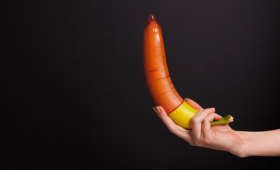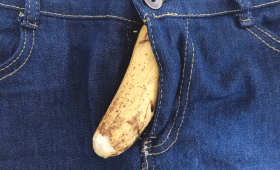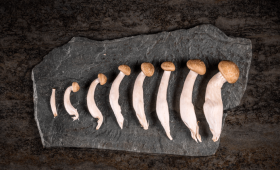What Is The Difference Between Turkey And The Netherlands In Terms Of Cost?
The most pronounced difference between Turkey and the Netherlands lies in the overall cost of aesthetic surgery procedures. The Netherlands typically imposes very high pricing for these aesthetic operations due to elevated living expenses, facility overhead costs, and specialist fees.
Turkey, conversely, manages to keep its costs significantly lower, often 60% to 80% less than Dutch prices, even in facilities with international standards and accreditations. Prices in Turkey are frequently offered as all-inclusive packages that conveniently cover accommodation and transfers, ensuring patients can manage their budgets more predictably and reliably. This notable economic advantage firmly establishes Turkey as an attractive medical tourism destination for elective procedures.
How Do Waiting Times For Surgery Vary In The Two Countries?
Aesthetic surgery in the Netherlands can lead to extended waiting times because of high demand and the limited capacity of local specialists. It is not uncommon for patients to wait several months to secure an appointment with a specialist and finalize a surgery date. In stark contrast, health centers in Turkey are exceptionally fast and agile in process management, having structured their business models to serve international patients efficiently. A scheduling process that might take months in the Netherlands is typically completed in Turkey with an operation date set within a few weeks following the initial consultation. This operational speed provides a great advantage in time and convenience for patients seeking prompt aesthetic solutions.
What Do The All-Inclusive Packages In Turkey Cover?
The pricing system in Turkey deviates from the standard surgical fee structure prevalent in the Netherlands by offering comprehensive, all-inclusive packages designed to meet the full needs of international patients. These packages cover not just the core costs of the surgical procedure and anesthesia, but also include luxury hotel accommodation, VIP transfer services between the airport, hospital, and hotel, necessary pre- and post-operative medications, and, crucially, professional English-speaking interpreting and coordination services. This holistic approach minimizes the logistical and communication stress that patients might encounter in a foreign country, ensuring a seamless and comfortable medical experience.
What Is The Average Cost Of Penile Enlargement Surgeries In The Netherlands?
The average cost of penile enlargement surgeries in the Netherlands is considerably high, driven by the country’s generally high cost structure. Prices can vary based on the techniques employed (fat transfer, ligament cutting) and the clinic’s location but may be around two to three times higher than equivalent comprehensive packages offered in Turkey. Furthermore, the cost in the Netherlands typically covers only the surgical service; the patient is required to organize all other supplementary medical and non-medical support services, such as accommodation and transfers, separately and at high rates, which significantly inflates the total expenditure for the medical trip.
What Are The International Accreditation Standards Of Turkish Hospitals?
Major hospitals in Turkey that cater to medical tourism often hold globally recognized accreditations like the US-based Joint Commission International (JCI). These accreditations verify that the facilities’ patient safety, hygiene standards, and quality management systems are equivalent to, or in some aspects even surpass, those of highly regulated clinics in the Netherlands. In an effort to maintain international competitiveness, Turkish centers consistently invest in the latest technology and modern medical practices, ensuring the quality of service remains consistently high. This commitment provides a strong guarantee to international patients regarding the reliability and safety of the care they receive.
What Are The Hygiene And Safety Protocols In Netherlands Clinics?
Clinics and hospitals in the Netherlands are subject to the strict health regulations of the European Union and the rigorous oversight of national medical authorities, resulting in very high hygiene and safety protocols. European standards are strictly implemented concerning infection control and general patient care. However, the scope of personalized logistical support (transfers, accommodation) and focus on the aesthetic patient experience in the Netherlands may not be as extensive as that offered by specialized medical tourism centers in Turkey. While medical standards are undoubtedly high, the scope of services is generally more limited compared to Turkey’s comprehensive package approach.
How Does Case Volume In Turkey Affect Surgeon Expertise?
Turkey’s high volume of medical tourism, particularly in specialized aesthetic procedures like penile enlargement, allows surgeons to develop deep and continuous specialization in this specific field. Performing a large number of similar operations enhances the technical precision of Turkish specialists and enables them to manage rare anatomical situations more effectively. Although Dutch surgeons are also competent, the intense experience gained from the high volume of international patient flow is a defining factor that helps Turkish experts optimize the aesthetic quality and natural appearance of the surgical outcomes they deliver consistently.
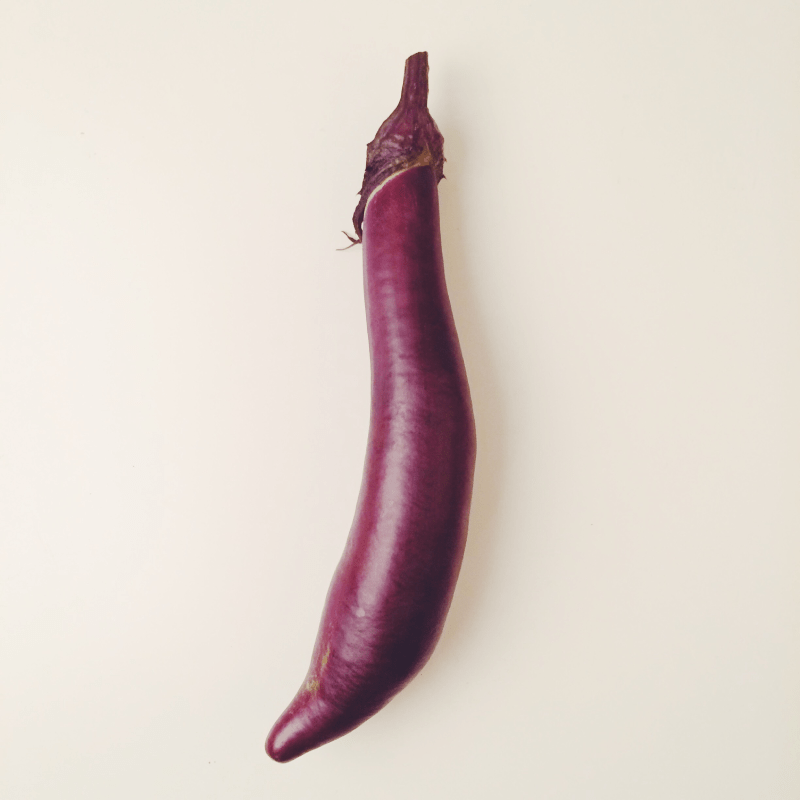
What Should Be Considered When Choosing A Specialist In The Netherlands?
When selecting a specialist for penile enlargement surgery in the Netherlands, it is essential that the surgeon is registered with relevant national medical organizations, such as the Netherlands Society for Plastic Surgery (NVPC), and specializes in Plastic, Reconstructive, and Aesthetic Surgery. Patients should meticulously investigate the specialist’s specific experience in this field, the number of years they have been performing the procedure, and previous patient reviews. Due to the high costs involved in the Netherlands, choosing an ethical and highly competent specialist is critical for a successful and satisfying result, demanding thorough research before committing.
Is The Permanence Of The Fat Transfer Method The Same In Both Countries?
The permanence of the fat transfer method is primarily determined by the quality of the fat purification technique used and the surgeon’s injection skill, rather than the country itself. Modern centers in Turkey actively use advanced centrifugation or specialized filtering systems to enhance the viability of the fat, aiming to maximize the fat graft survival rate. Although Dutch centers also adhere to high standards, the higher case volume in Turkey may contribute to more experienced surgeons in these subtle techniques. While some fat is reabsorbed in both countries, the portion that remains permanent preserves the aesthetic result for many years.
How Is The Post-Operative Recovery Process And Follow-Up Managed?
The post-operative recovery process relies on similar medical protocols in both the Netherlands and Turkey, as surgical techniques adhere to international standards. Patients in both countries are advised to avoid sexual activity and strenuous sports for four to six weeks. However, there are distinctions in follow-up management. Turkey provides dedicated, often remote (online), regular check-ups and 24/7 accessible coordinator support for international patients. Follow-up in the Netherlands is traditionally conducted through in-person clinic appointments, which may involve additional travel inconvenience and cost for foreign patients seeking post-operative assurance.
How Are Accommodation And Transfer Arrangements Handled In The Netherlands?
International patients undergoing penile enlargement surgery in the Netherlands are typically obligated to organize their accommodation and transfer arrangements entirely independently. Clinics or hospitals do not customarily integrate logistical services like hotel booking or airport transfer into their service packages, instead directing the patient towards external service providers. This situation necessitates extra time commitment and financial resources in a high-cost country like the Netherlands. In sharp contrast, in Turkey, this entire process is centrally managed with luxury vehicles and comfortable hotels as an indispensable part of the overall package, offering maximum ease and comfort to the patient.

What Is Turkey’s Advantage In Combining Treatment With A Holiday?
Beyond the medical treatment, Turkey offers patients the unique opportunity to combine their recovery period with a rich cultural and restful holiday experience. Exploring the historical treasures of Istanbul or the serene atmosphere of the Mediterranean coast, both before and after the operation (with permission for light activities), provides profound psychological relaxation. This amalgamation helps break the monotony often associated with recovering at home and positively influences the patient’s overall mood and recovery outlook. In the Netherlands, the aesthetic surgery experience generally remains purely a medical process without this extensive integrated tourism support.
In Which Country Are Non-Surgical Thickening Options More Economical?
Hyaluronic Acid dermal fillers, the non-surgical method for thickening, are utilized extensively in both countries. However, filler applications in Turkey are generally more cost-effective than those in private clinics in the Netherlands and are more accessible due to the high volume of cases. This price advantage allows patients to comfortably schedule their filler refreshers at more suitable intervals, aiding in the continuous preservation of the desired girth. In the Netherlands, the high cost can often present a significant barrier for patients requiring these regular maintenance treatments to sustain the aesthetic result.
What Are The Anesthesia Processes And Safety Protocols In Both Countries?
Anesthesia processes and safety protocols strictly adhere to high, internationally recognized standards in both the Netherlands and Turkey. Surgeries are performed in both countries by experienced anesthesiologists within modern, fully equipped operating rooms. Sedation-supported local anesthesia is generally preferred for simpler procedures, while general anesthesia is the standard choice for combined and more complex surgeries. Centers in Turkey prioritize operational safety by completing all necessary pre-operative medical tests more quickly and coordinately, thereby effectively reducing risks for international patients and ensuring a smooth surgical journey.
Does Insurance Cover Penile Enlargement Surgery In The Netherlands?
In the Netherlands, similar to other European nations, aesthetic penile enlargement surgeries (for both length and girth) are generally not covered by the national (Zorgverzekeringswet) or private health insurance schemes. Insurance coverage is exceedingly rare and usually limited to medically necessary situations, such as reconstructive surgery following a severe congenital anomaly or trauma. Consequently, patients pursuing this procedure in the Netherlands must budget to cover the entirety of the high costs themselves. This fundamental financial reality significantly increases the appeal of more economic alternatives like Turkey.
Which Advanced Technologies Are Used In Fat Injection In Turkey?
Specialist centers in Turkey continually invest in advanced technologies to optimize the success rate of the fat transfer method applied for penile thickening. These cutting-edge techniques include less traumatic fat harvesting methods like Vaser liposuction and utilizing specialized purification and filtering systems to maximize the purity and, consequently, the viability of the collected fat cells. These modern, meticulous approaches are specifically designed to significantly increase the survival rate of the injected fat, ensuring the resulting thickening is both more permanent, smooth, and aesthetically homogeneous in its appearance for the patient.
Does The Language Barrier Pose A Problem For Patients Traveling To The Netherlands?
While English is widely spoken in the Netherlands, the number of English-speaking staff, particularly among some hospital and nursing personnel, may be more limited compared to Turkish centers focused on medical tourism. Patients might experience a slight language barrier during detailed consultations, admission processes, and nursing care. Turkish centers mitigate this by employing fluent English-speaking, professional, full-time coordinators and interpreters. This crucial communication support ensures the patient fully comprehends all medical instructions and feels completely secure throughout the treatment process, a significant advantage over less specialized facilities.
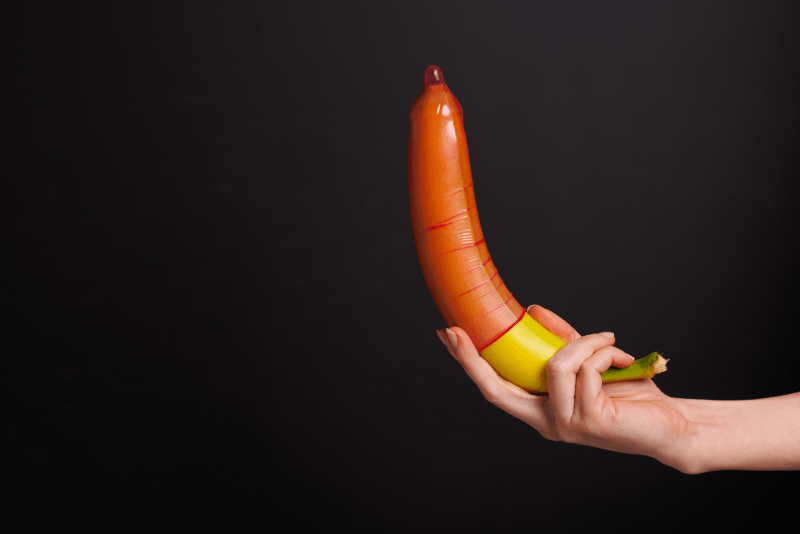
What Is The Scope Of Interpretation Services Offered In Turkey?
Interpretation services provided to international patients in Turkey surpass basic translation; they offer comprehensive coordination. English-speaking coordinators are dedicated to the patient at every stage, from airport arrival until discharge. This service encompasses the precise translation of complex medical terminology during consultations, efficient management of hospital admission and discharge paperwork, and confirming the patient’s full understanding of detailed post-operative care instructions. This seamless communication support provides a significant logistical and comfort advantage often available only at an extra charge or not at all in Dutch centers.
How Is Post-Operative Pain Management Provided In Both Countries?
Post-operative pain management is prioritized in both the Netherlands and Turkey to maximize patient comfort, utilizing standardized medical protocols. In both countries, pain typically reaches its peak intensity within the first 48 hours following the operation and is effectively controlled with strong and effective prescription pain relievers administered by specialists. Turkish centers, emphasizing the comfort of foreign patients, concentrate on personalized and accessible pain management plans, aiming to ensure the patient’s recovery process is as minimal-stress and comfortable as possible, thereby enhancing the overall patient satisfaction.
How Much Does The Return To Sexual Life Period Differ In The Two Countries?
The recovery period required for a safe return to sexual activity and heavy physical activities is dictated by the healing protocols of the specific surgical technique, and this timeframe is uniformly set at four to six weeks in both the Netherlands and Turkey. This duration is biologically essential to allow incision sites to fully heal, internal swelling to completely resolve, and the penis’s new form to stabilize adequately. Specialists in both locations issue strict instructions against straining the penis during this critical period. There is no significant difference in this medical timeline between the two countries, as the duration is governed by the universal biological rate of human healing.
Can The Permanence Of Length Gain Be Guaranteed In Both Countries?
Given that length gain is achieved through the partial division of the suspensory ligament, this anatomical modification, when performed correctly, is regarded as permanent in both the Netherlands and Turkey. However, it is essential to note that no surgical procedure offers a 100% permanent guarantee. To actively maximize the permanence of the gain, specialists in both countries highly recommend the consistent and correct use of penile stretching (traction) devices during the entire post-operative period. These devices play a crucial role in stabilizing the newly exteriorized segment and promoting tissue tension, ensuring the result is long-lasting.
Is Psychological Evaluation Mandatory Before Surgery In Both Countries?
Ethical and professional surgical centers in both the Netherlands and Turkey strongly consider or require a psychological evaluation before performing aesthetic procedures like penile enlargement. This is done to ensure the patient’s expectations are genuinely realistic. The core aim of this assessment is to rule out conditions such as Body Dysmorphic Disorder (BDD), which could severely compromise surgical satisfaction. This approach is a fundamental ethical principle upheld by responsible centers in both countries, ensuring the patient’s mental well-being aligns with the physical outcome sought.
How Does Pricing Transparency In Turkey Compare To The Netherlands?
Turkey offers a significantly higher degree of pricing transparency compared to healthcare practices in the Netherlands, primarily due to the availability of all-inclusive packages. In the Netherlands, patients may unexpectedly receive additional invoices for hospital fees, anesthesia services, or materials used, beyond the initial surgical fee. Conversely, in Turkey, the single package price presented upfront covers the operation, accommodation, transfers, and all necessary consumables, effectively eliminating budget surprises and financial uncertainty for international patients, offering great clarity.
What Is The Likelihood And Cost Of Revision Surgery In The Netherlands?
The need for revision (corrective) surgery depends on the quality of the initial surgery and the body’s reaction, making it a low probability in both countries. However, revision surgeries in the Netherlands are typically high-cost, often similar to the initial operation, and access to an expert surgeon, along with potential waiting times, can be extended. Insurance in the Netherlands is unlikely to cover revision costs. This scenario suggests that, purely from a cost perspective, Turkey may present a more viable and affordable option for patients facing the risk of a corrective procedure.
Is The Level Of Expertise For Revision Surgery High In Turkey?
Experienced medical tourism centers in Turkey possess a high level of expertise necessary to perform complex revision surgeries, which is cultivated by their high overall case volume. In instances like fat clumping, asymmetrical distribution, or patient dissatisfaction, Turkish specialists are adept at offering a rapid and cost-effective corrective intervention plan. This capability highlights Turkey’s role as a significant center of assurance and expertise for international patients, especially when considering the high costs and often lengthy waiting times encountered in the Netherlands for specialized procedures.
How Are The Necessary Medical Tests Performed In Both Countries Before Surgery?
Mandatory medical tests (complete blood count, coagulation tests, ECG, etc.) required before surgery are standard practice in both countries. However, there are significant organizational differences. Patients traveling to Turkey can swiftly complete these tests, often within a few hours, at laboratories seamlessly partnered with the center. In the Netherlands, tests may require separate appointments at different laboratories or medical facilities, and receiving results might take longer. The expediency in Turkey ensures the efficient use of the patient’s travel time and accelerates the overall surgery scheduling process.
How Are Hospitals And Clinics Regulated In The Netherlands?
Hospitals and clinics in the Netherlands are continuously and rigorously inspected by national authorities, such as the Health and Youth Care Inspectorate (IGJ). These comprehensive inspections enforce strict compliance regarding medical equipment, sterilization protocols, and operational procedures, ensuring adherence to the highest national standards. These regulations provide patients with a significant guarantee of medical safety. While Turkish centers emphasize international accreditations, the Netherlands establishes its reliability through a robust national oversight system.
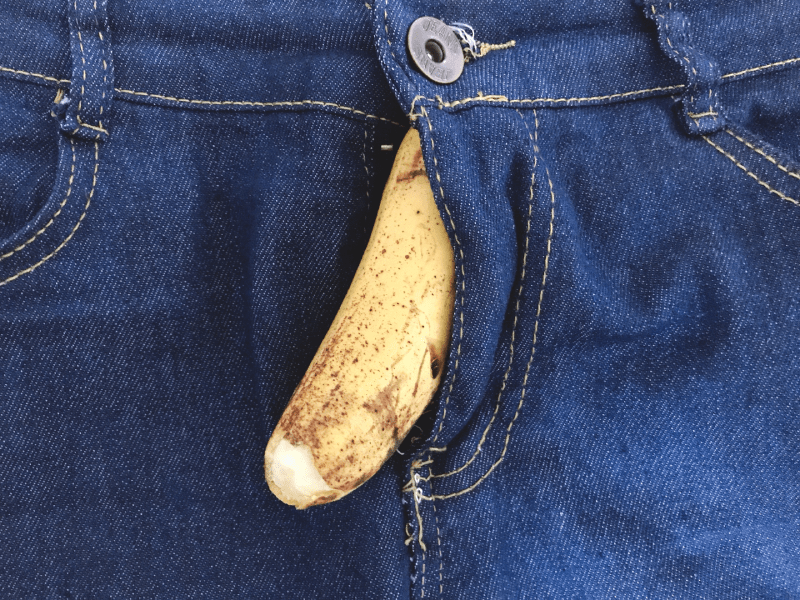
What Is The Quality And Approval Status Of Dermal Fillers Used In Turkey?
Reputable centers in Turkey exclusively utilize high safety profile, medically approved Hyaluronic Acid-based dermal fillers for penile thickening, ensuring compliance with European Union (CE) or FDA standards. These fillers are highly bio-compatible, naturally found in the body, which minimizes the risk of allergic reactions. The quality of materials used meets the same high standard as in Dutch centers; however, the cost of the filler material and its application is generally lower in Turkey, allowing patients to access high-quality treatment at a more favorable price point.
How Is The Post-Operative Scarring Situation Managed In Both Countries?
Post-operative scar management is addressed with aesthetic sensitivity by expert surgeons in both countries. For length surgeries, incisions are carefully placed in a naturally concealed area, such such as the groin region, which fades over time to become small and indistinct. For fat injection procedures, only millimetric cannula entry marks remain, which typically disappear almost completely within a few months. Surgeons in both locations focus on utilizing the most advanced suturing and wound closure techniques to minimize visible scarring, strictly adhering to international aesthetic standards.
Why Are Combined (Length And Girth) Procedures More Common In Turkey?
Turkish medical centers frequently focus on combined procedures (addressing both length and girth simultaneously) due to the strong expectation from international patients to achieve the most comprehensive and satisfying results in a single travel trip. This strategy ensures the patient benefits from the most time- and cost-efficient treatment possible. While combined procedures are available in the Netherlands, high costs and long waiting periods may often lead patients to postpone such comprehensive treatments or opt for only a single method. Turkey’s goal is a holistic aesthetic transformation delivered in one dedicated visit.
How Is Erection Quality Affected By Surgery In The Netherlands?
Penile enlargement surgeries performed in the Netherlands are specifically designed not to adversely affect or compromise erection quality and function. Surgical procedures are conducted in the external layers (fat transfer) or near the pubic bone (ligament cutting), meticulously avoiding damage to the internal vascular and nerve structures responsible for erection. While temporary changes in sexual function may occur post-operatively due to transient swelling and tenderness, this condition is not permanent. The meticulous execution of the operation by Dutch surgeons is crucial for protecting these vital structures.
Do Return To Sport And Exercise Times Follow The Same Instructions In Both Countries?
Instructions regarding the return to sports and exercise activities demonstrate similar medical continuity in both Turkey and the Netherlands, focusing on ensuring the penis’s complete healing and preservation of the surgical outcome. Only light walking is permissible during the first two weeks. Heavy exercises like running, weightlifting, cycling, or any activities causing penile strain or impact are generally allowed only four to six weeks later, contingent upon the specialist’s explicit approval. This window is a critical, universal recovery protocol necessary for incision sites to close and the injected fat to settle fully.
How Do The Details Of The Fat Transfer Technique Used In Turkey Compare To The Netherlands?
The fat transfer technique employed in Turkey aligns with the basic principles used in the Netherlands but features an enhanced focus on meticulous detail due to competitive medical tourism pressures. This process includes harvesting fat with advanced, less traumatic techniques like Vaser liposuction, followed by rigorous purification with specialized devices (centrifuge or filter) to maximize cell viability. The purified fat is then injected in strategic, fine layers into the penis for a smooth, homogeneous contour. This high-precision application, while also present in Dutch centers, is coupled with Turkey’s high case volume, offering an advantage derived from extensive specialist experience.
What Are The Reasons For Refusing Surgery In Both Countries?
Ethical centers in both Turkey and the Netherlands reserve the right to refuse surgery requests, prioritizing patient safety above all else. Primary reasons for refusal include the patient having unrealistic expectations that cannot be met surgically, the clear presence of a psychological condition like Body Dismorphic Disorder (BDD), or uncontrolled serious chronic illnesses (e.g., uncontrolled diabetes, heart failure) that pose significant surgical risks. These are fundamental ethical criteria valid in both nations, established to protect the patient’s physical health and post-operative satisfaction.
What Are The Extra Advantages For European Patients Choosing Turkey Over The Netherlands?
Choosing Turkey over the Netherlands offers European patients several key additional advantages. Turkey provides more affordable flight options and comprehensive, all-inclusive logistics packages (VIP transfer, luxury accommodation, interpreter) that are generally unavailable in the Netherlands. This combination simplifies the patient’s travel and recovery process, effectively eliminating the issues of high-cost, fragmented services and organization found in Dutch medical centers. Turkey successfully merges high-quality care with accessible pricing and complete logistical support, resulting in a less stressful and more cost-efficient treatment journey.

